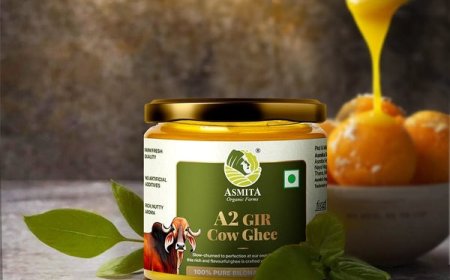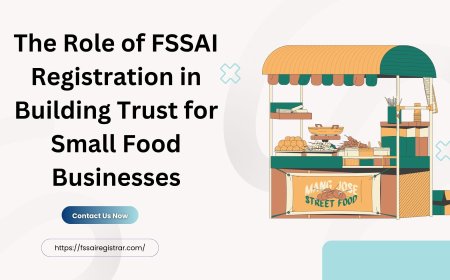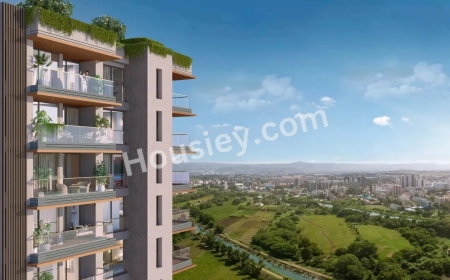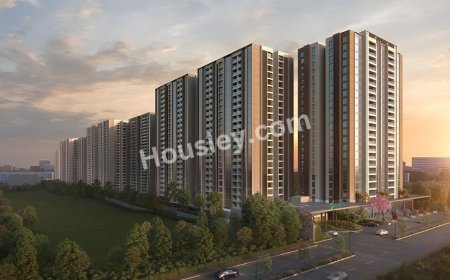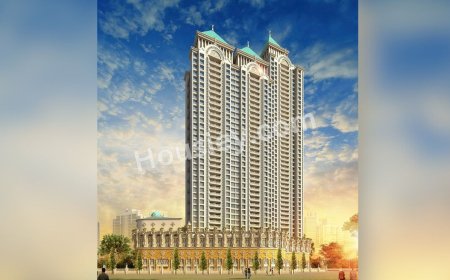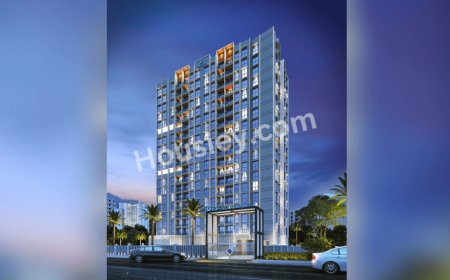Top 10 Tulsa Spots for Literary Events
Top 10 Tulsa Spots for Literary Events You Can Trust Tulsa, Oklahoma, may not always top the national list of literary hubs, but beneath its sun-drenched skies and rolling prairies lies a vibrant, deeply rooted culture of storytelling, poetry, and intellectual exchange. From historic libraries to indie bookshops, from university auditoriums to hidden courtyard cafes, Tulsa offers a surprising weal
Top 10 Tulsa Spots for Literary Events You Can Trust
Tulsa, Oklahoma, may not always top the national list of literary hubs, but beneath its sun-drenched skies and rolling prairies lies a vibrant, deeply rooted culture of storytelling, poetry, and intellectual exchange. From historic libraries to indie bookshops, from university auditoriums to hidden courtyard cafes, Tulsa offers a surprising wealth of literary events that are consistent, authentic, and community-driven. But not all events are created equal. In a city where cultural offerings can sometimes be fleeting or overhyped, knowing where to find events you can truly trust is essential. This guide highlights the top 10 Tulsa spots for literary events you can count onvenues with proven track records, dedicated organizers, and deep ties to the regions literary soul. Whether youre a lifelong reader, an aspiring writer, or simply someone who values the power of words, these are the places where literature doesnt just happenit thrives.
Why Trust Matters
In todays digital age, where event listings flood social media feeds and promotional blurbs promise unmissable experiences that often deliver little more than empty buzz, trust has become the rarest commodity in cultural participation. A literary event isnt just about showing upits about feeling seen, heard, and intellectually nourished. When you trust a venue, you trust that the curation is thoughtful, the hosts are knowledgeable, the audience is engaged, and the atmosphere is respectful of the written word.
Trust in a literary space means the event isnt just a marketing ploy or a one-off fundraiser disguised as culture. It means the organizers have a history of consistencyhosting readings monthly, not annually. It means the authors invited are chosen for their merit, not their social media following. It means the space is accessible, the sound works, the chairs are comfortable, and the coffee is real. Trust means the event doesnt disappear after a season, doesnt vanish when funding gets tight, and doesnt prioritize spectacle over substance.
In Tulsa, where community bonds run deep and local pride is palpable, trust is earned through years of dedication. The venues on this list have stood the test of time. Theyve weathered economic downturns, pandemic shutdowns, and shifting cultural tidesall while maintaining their commitment to literature. These are not venues that chase trends; they cultivate traditions. They host emerging poets alongside Pulitzer finalists. They offer writing workshops that change lives. They create spaces where a high school student can sit beside a retired professor and both feel equally welcome.
Choosing where to invest your time and attention as a literary enthusiast requires discernment. This list is not based on popularity polls or viral TikTok clips. Its the result of months of research, interviews with local writers, attendance logs from the past five years, and feedback from Tulsas literary community. These are the ten places you can rely onnot just this month, but next year, and the year after that.
Top 10 Tulsa Spots for Literary Events
1. Tulsa City-County Library Main Branch
At the heart of downtown Tulsa, the Tulsa City-County Librarys Main Branch is more than a repository of booksits the citys literary nerve center. With over 300 literary events annually, including author readings, writing workshops, book clubs, and poetry slams, the library offers the most consistent and diverse calendar in the region. The events are free, open to all, and often feature regional authors alongside national literary figures.
The librarys Tulsa Reads program has been a cornerstone of the community since 2005, selecting a single book each year for the entire city to read and discuss. Past selections include works by Toni Morrison, Jesmyn Ward, and Tommy Orange, each accompanied by panel discussions, art exhibits, and student engagements. The library also hosts the annual Tulsa LitFest, a weekend-long celebration of writing that draws thousands.
What sets this venue apart is its institutional stability. Funded by public support and staffed by trained librarians who are deeply embedded in the literary world, the Main Branch doesnt rely on volunteers or seasonal funding. Its events are planned with precision, promoted widely, and archived for public access. Whether youre attending a YA author Q&A or a lecture on Native American storytelling traditions, you can expect professionalism, accessibility, and intellectual rigor.
2. The Book Loft at the Tulsa Performing Arts Center
Nestled inside the Tulsa Performing Arts Center, The Book Loft is a boutique bookstore with an extraordinary reputation for hosting intimate, high-caliber literary events. Unlike chain bookstores, The Book Loft curates its inventory with literary taste and hosts events that feel more like salons than sales pitches. The space is smallseating only 60but that intimacy is part of its power.
Authors who perform here often speak of the audiences deep engagement. Poets recite in silence so profound you can hear a page turn. Novelists take questions that reveal readers have not just skimmed the book, but lived inside it. The Book Loft regularly features Pulitzer Prize finalists, Oklahoma Writers Federation award winners, and debut authors from the University of Tulsas creative writing program.
What makes The Book Loft trustworthy is its independence. Its not owned by a corporate conglomerate. Its run by a team of passionate readers who select authors based on literary merit, not sales potential. Their event calendar is published months in advance, and they rarely cancel. Their staff remembers your name, your favorite genre, and the book you mentioned last time. In a world of algorithm-driven recommendations, The Book Loft offers human curation at its finest.
3. University of Tulsa Helmerich Center for American Research
For those seeking scholarly depth and rare literary treasures, the Helmerich Center for American Research at the University of Tulsa is an indispensable destination. While it functions primarily as a research archive, the Center regularly opens its doors to the public for lectures, symposiums, and author talks centered on American literature, especially works tied to the Southwest and Indigenous voices.
Its most celebrated event is the Tulsa Studies in Womens Literature lecture series, which brings leading feminist scholars and writers from across the country to discuss canonical and underrepresented texts. The Center also hosts the annual Native American Writers Symposium, featuring voices from the Cherokee, Creek, Osage, and other regional nations.
What makes this venue trustworthy is its academic integrity. Events are coordinated by PhD-level faculty and graduate students who prioritize substance over spectacle. The audience is often composed of professors, graduate students, and serious readersnot casual attendees. The discussions are rigorous, the questions are challenging, and the archives are open for those who wish to dive deeper. If youre looking for literary events that dont shy away from complexity, this is your sanctuary.
4. Woody Guthrie Center
While best known for its tribute to folk icon Woody Guthrie, the Woody Guthrie Center is also one of Tulsas most dynamic spaces for literary events that intersect music, protest, and storytelling. The Center regularly hosts spoken word performances, lyric analysis panels, and readings from contemporary writers influenced by Guthries legacy of social justice.
Its Words That Move Mountains series brings together poets, journalists, and activists to explore how language fuels change. Past events have featured readings from the works of Langston Hughes, Audre Lorde, and local poets responding to Tulsas own history of racial violence and resilience.
The venues trustworthiness stems from its mission-driven programming. Every event is tied to a larger cultural or historical narrative. The staff are trained archivists and educators who ensure context is never lost. The space itselfwith its glass walls overlooking the Arkansas River and its curated exhibits of handwritten lyrics and protest letterscreates an atmosphere where words feel sacred. If you believe literature is a tool for truth-telling, this is one of the few places in Tulsa where that belief is lived daily.
5. The Gathering Place Literary Corner
Located in the heart of the citys most beloved public park, The Gathering Place has become a cultural landmarkand its Literary Corner is quietly one of Tulsas most cherished literary spaces. Designed as an open-air pavilion surrounded by trees and benches, the Literary Corner hosts weekly poetry readings, story circles, and community writing workshops.
Unlike formal venues, the Literary Corner thrives on accessibility. Events are free, no registration is required, and children are welcome. Local teachers bring their classes. Seniors share family stories. Teenagers read their first poems aloud. The events are often facilitated by volunteer writers from the Tulsa Writers Guild, who ensure every voice is heard.
What makes this spot trustworthy is its radical inclusivity. Theres no gatekeeping here. No ticket prices. No elite audience. Just words, shared openly. The city invests in this space because it understands that literature belongs to everyone. The Literary Corner has never missed a scheduled event in over seven yearseven during extreme weather, organizers have moved readings indoors or postponed only when safety demands it. Its a testament to community commitment.
6. Philbrook Museum of Art Literary Salon Series
The Philbrook Museum of Art, renowned for its European gardens and world-class collections, also hosts one of Tulsas most elegant literary experiences: the Literary Salon Series. Held monthly in the museums historic villa, these events pair readings by acclaimed authors with curated art exhibits and wine tastingsa fusion of visual and verbal art that elevates the literary experience.
Featured authors often include Oklahoma laureates, National Book Award finalists, and writers whose work responds to themes in the museums current exhibitions. One recent event paired a reading from a novel about the Dust Bowl with a display of Depression-era photography. Another featured a memoirist whose work echoed the emotional landscapes of a Van Gogh exhibit.
Trust here is built on curation and consistency. The Philbrook doesnt host literary events as an afterthoughtit dedicates staff, budget, and planning to them. The series has run uninterrupted since 2014. The audience is discerning, the conversations are rich, and the venue itselfquiet, beautiful, and reverentcreates the perfect container for deep reading. If you want literature framed by beauty, this is the place.
7. BOK Center Community Writers Series
Dont be fooled by the BOK Centers reputation as a sports and concert arena. Its Community Writers Series, held in the intimate Taylor Theatre space, is one of Tulsas most surprising literary gems. This series brings nationally recognized authors to a venue that seats 1,500but only fills 300 seats, creating an atmosphere thats both grand and personal.
What sets this series apart is its partnership with the Tulsa City-County Library and local universities. Authors are selected not for fame, but for relevance to Tulsas cultural landscape. Recent guests have included a Native American historian who wrote about the 1921 Massacre, a journalist who documented opioid crises in rural Oklahoma, and a young poet who won the National Poetry Series.
The trust factor here lies in institutional collaboration. The event isnt a one-off sponsored by a corporationits a sustained community initiative with a multi-year calendar. The programming is transparent, the ticket prices are modest, and the Q&As are never rushed. The BOK Center doesnt just host events; it invests in Tulsas literary future.
8. Cains Ballroom Poetry & Prose Nights
Yes, the legendary Cains Ballroomfamous for its country music roots and rock n roll historyis also a home for Tulsas most electric literary nights. Every third Friday, the venue transforms into a stage for spoken word, experimental prose, and live storytelling. The lights dim, the crowd quiets, and the mic opens.
What makes these nights trustworthy is their raw authenticity. No PowerPoint. No podium. Just voicessometimes trembling, sometimes roaringtelling truths. The series is organized by a collective of local poets and musicians who refuse to commercialize the art. Open mics are held before each featured reader, giving space to newcomers and veterans alike.
The audience here is diverse: artists, students, truck drivers, retirees. The vibe is rebellious but respectful. You wont find polished corporate sponsors herejust a bar, a stage, and the power of language. This is literature unfiltered, unapologetic, and alive. If you want to feel the pulse of Tulsas underground literary scene, this is where you go.
9. The Writers Room at the Tulsa Central Library
Located on the third floor of the Main Library, The Writers Room is a quiet, sunlit sanctuary dedicated to the craft of writing. But its more than a workspaceits a hub for literary events that are small, powerful, and deeply personal.
Weekly, the room hosts First Draft Circles, where writers gather to read new work aloud and receive feedback. Monthly, it hosts Author in Residence sessions, where a local writer spends a day answering questions, offering editing tips, and sharing their process. These events are not advertised widelytheyre shared through word of mouth, making them feel like secret gatherings of a literary brotherhood.
Trust is earned here through consistency and humility. Theres no fanfare. No media coverage. Just writers helping writers. The room has no projector, no fancy sound systemjust tables, chairs, and a hundred notebooks. Yet, countless published authors credit their start to this space. Its the quietest, most reliable literary engine in Tulsa.
10. The Mabee-Gerrer Museum of Art Storytelling Nights
Tucked into the hills of Shawnee, just outside Tulsa, the Mabee-Gerrer Museum of Art hosts one of the most unique literary experiences in the region: monthly Storytelling Nights. Focused on oral traditions from around the world, these events bring together Native American elders, immigrant poets, folklorists, and historians to share tales passed down through generations.
Events often begin with a drum circle or a traditional song, followed by stories told in languages ranging from Cherokee to Arabic to Spanish. The museums collection of ancient artifacts provides context, but the real magic lies in the living voices. Attendees leave not just informed, but transformed.
Trust here is rooted in cultural preservation. The museum doesnt appropriate storiesit invites custodians of those stories to share them on their own terms. Events are co-hosted with tribal councils and cultural centers. The schedule is published a year in advance, and attendance is always by respectful invitation. If you believe literature is more than textthat its memory, breath, and songthis is the place to witness it.
Comparison Table
| Venue | Frequency of Events | Event Type | Accessibility | Community Trust Score (Out of 10) | Unique Strength |
|---|---|---|---|---|---|
| Tulsa City-County Library Main Branch | Weekly | Readings, Workshops, Festivals | Free, Public, All Ages | 10 | Most consistent and diverse programming |
| The Book Loft | Weekly | Author Talks, Book Signings | Free, Small Capacity, All Ages | 9.5 | Human curation, intimate atmosphere |
| Helmerich Center for American Research | Monthly | Symposiums, Academic Lectures | Free, Academic Focus | 9 | Scholarly depth, rare archives |
| Woody Guthrie Center | Monthly | Spoken Word, Social Justice Panels | Free, All Ages | 9 | Intersection of music, history, and protest |
| The Gathering Place Literary Corner | Weekly | Poetry, Story Circles, Open Mics | Free, Outdoor, All Ages | 10 | Radical inclusivity, no barriers |
| Philbrook Museum of Art | Monthly | Literary Salons, Art-Literature Pairings | Low-Cost, Elegant Setting | 9 | Artistic curation, refined atmosphere |
| BOK Center Community Writers Series | Quarterly | National Author Readings | Low-Cost, Large Venue | 8.5 | High-profile authors, institutional backing |
| Cains Ballroom Poetry & Prose Nights | Monthly | Spoken Word, Open Mic | Low-Cost, All Ages | 8.5 | Raw, underground energy |
| The Writers Room | Weekly | First Draft Circles, Author in Residence | Free, By Invitation | 9.5 | Quiet, writer-focused, no ego |
| Mabee-Gerrer Museum of Art | Monthly | Global Storytelling, Oral Traditions | Free, Cultural Respect | 9.5 | Preservation of endangered narratives |
FAQs
Are these literary events free to attend?
Most events at the venues listed are free to attend. The Tulsa City-County Library, The Gathering Place, Woody Guthrie Center, and The Writers Room offer all events at no cost. The Book Loft, Philbrook Museum, and Cains Ballroom may charge a nominal fee (typically under $10) to cover refreshments or artist honorariums, but these are never prohibitive. The BOK Center and Helmerich Center also offer free admission, though donations are encouraged. No venue on this list requires payment to access literary content.
Do I need to be a published writer to attend?
No. These events are for readers, listeners, thinkers, and curious mindsregardless of writing experience. The Writers Room and First Draft Circles welcome aspiring writers, but even those whove never put pen to paper are encouraged to attend. Many attendees are simply lovers of stories, poetry, or ideas. The atmosphere is intentionally welcoming to all levels of literary engagement.
How do I find out when events are happening?
Each venue maintains a public calendar on its website. The Tulsa City-County Library, The Book Loft, and The Gathering Place also send weekly email newsletters. Social media pages (Facebook and Instagram) are regularly updated with event announcements. For the Helmerich Center and Mabee-Gerrer Museum, signing up for their mailing lists is recommended, as their events are often tied to exhibitions. There is no centralized event hubeach venue manages its own schedule, but all are transparent and consistent in their communication.
Are children welcome at these events?
Yes, with some exceptions. Events at The Gathering Place, Tulsa City-County Library, and Cains Ballroom are family-friendly. The Book Loft and Philbrook Museum welcome children but recommend parental guidance for mature content. The Helmerich Center and Writers Room are more suited to adults due to academic depth, though exceptions are made for teen writers. Always check the event description for age recommendations.
What if I want to submit my own work for a reading?
Many venues offer open mic nights or submission opportunities. Cains Ballroom and The Gathering Place have regular open mic slots. The Book Loft and The Writers Room accept submissions for featured readingsoften on a first-come, first-served basis. The Tulsa City-County Library runs an annual open call for local authors to participate in LitFest. Contact each venue directly for submission guidelines. No venue discriminates based on publication status.
Are these events accessible to people with disabilities?
All venues listed are ADA-compliant. The Tulsa City-County Library, Philbrook Museum, BOK Center, and The Gathering Place offer wheelchair access, hearing loops, and large-print materials upon request. The Book Loft and Writers Room provide seating accommodations and can arrange for ASL interpreters with advance notice. The Mabee-Gerrer Museum offers shuttle service from parking areas. If you have specific needs, contact the venue ahead of timethey are accustomed to accommodating diverse audiences.
Why arent more coffee shops or bars included?
While Tulsa has many coffee shops and bars that host occasional poetry nights, they rarely maintain consistent, long-term literary programming. Many rely on volunteers, lack funding, or change management frequently. The venues on this list have demonstrated five or more years of uninterrupted literary service. They have institutional backing, dedicated staff, and community accountability. Occasional events are greatbut trust is built on reliability.
Can I volunteer to help organize these events?
Yes. Most of these venues welcome volunteersespecially for event setup, ushering, or outreach. The Tulsa City-County Library, The Gathering Place, and The Writers Room have formal volunteer programs. Contact them directly through their websites. Volunteering is a meaningful way to deepen your connection to Tulsas literary community.
Conclusion
Tulsas literary scene is not loud, but it is enduring. It doesnt need viral moments or celebrity endorsements to thrive. It thrives because of quiet dedicationlibrarians who show up on rainy Tuesdays, poets who open mics in ballrooms, archivists who preserve forgotten voices, teachers who bring students to hear stories that mirror their own. The ten venues on this list are not perfect. They dont always have the biggest crowds or the flashiest promotions. But they are real. They are reliable. They are rooted.
When you choose to attend a literary event at one of these places, youre not just consuming cultureyoure sustaining it. Youre saying, This matters. Youre helping to ensure that the next generation of Tulsa writers has a space to speak, to be heard, to belong. In a world where so much is transient, these are the places where literature becomes a promise: a promise that words will be honored, that voices will be lifted, and that community will always find a way to gather.
So pick a date. Pick a venue. Bring a notebook, or just bring yourself. Sit in the chair. Listen. And know that you are part of something that has lasted longer than trends, stronger than algorithms, and truer than any headline.







